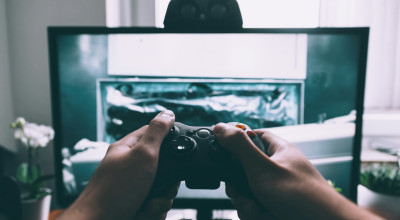Is Ecstasy Addictive?
August 28th, 2023
By P. Casey Arrillaga, LCSW, LCDC
People often wonder if the popular club/rave drug Ecstasy is addictive. This turns out to be a more complicated question than it sounds because there is no one formula for Ecstasy. The primary ingredient that users expect, MDMA, is often combined with other substances without telling the user, and sometimes the MDMA is left out completely. This post looks at what’s going on behind the scenes with Ecstasy and what that means for the people who use it.
Buyer Beware
Most people know that when they buy street drugs, there is no guarantee that they will get what they paid for. Street drugs are often adulterated or “cut” with other drugs, sometimes to get a better high and thus sell more, sometimes to stretch the drug further by adding something less expensive to increase profits, and sometimes because the popular drugs are less available, so the dealer uses what is readily available in order to make the sale. There is often no regard and no recourse for the end user.
Nowhere is this dynamic more apparent than with Ecstasy. Most users know that the active ingredient they want is MDMA, which increases a sense of friendship, trust, and empathy, while also providing a stimulant effect and enhancing enjoyment of music. All of this makes it seem perfect for use in clubs and raves, and it has been popular in these settings for decades.
What many users may not know is that MDMA is often cut with other substances and sometimes is left out completely. About one of every four Ecstasy users tested in one study turned out to not even be getting MDMA at all, even if they used a powdered form that was sold as “pure MDMA.” While MDMA has not been shown to be particularly addictive, some of the substances that are added or even completely substituted for MDMA have high abuse and addiction potential. Researchers analyzed both samples of Ecstasy/”pure MDMA” and performed hair follicle tests on self-reported users. Here is a partial list of the drugs they found had been added without the users being told:
- Amphetamine
- Methamphetamine
- Ketamine
- PCP
- Synthetic cathinones (“bath salts”)
- Unknown/uncommon psychoactive drugs
While some of these drugs have become more common in samples and some less common, it is alarming that the general trend among Ecstasy/MDMA users is that they have become less suspicious over time that the drug they are taking is not what it was advertised to be. This increased trust leads to increased risk.
What This Means for People Who Use Ecstasy
As people take Ecstasy, the risk of unintentional exposure to harmful substances is very high. This is even worse because they think they are taking something that has low abuse potential when they may be getting substances that are highly addictive, such as methamphetamine or PCP. These drugs that not only have a high abuse potential but also a proven track record of leading to dangerous behaviors, legal consequences, injury, mental health issues, and death.
It is also important to point out that while MDMA has not been proven to lead to abuse and addiction as much as some other drugs, it still caries risk even when it isn’t mixed with other substances. It has been known to cause overheating in users to the point that they are in medical danger. A number of deaths have been attributed to MDMA for this reason. It is possible that some of these may have been caused by a combination of MDMA and other drugs, but as we’ve seen already, this is a constant danger for anyone using this drug. Ecstasy/MDMA users are rolling the dice with heavy consequences every time they use it, and they often seem unaware of it.
Clearly, better education on this is necessary if the risks are to be diminished. It’s unrealistic to think that Ecstasy manufacturers and dealers are going to offer a safer product. Instead, end users need to be informed. Research has shown that the more Ecstasy/MDMA users are educated about the potential risks and likelihood that they are not getting what they expected, the less likely they are to use it, something that is not true of every drug. This means that education about the realities of Ecstasy/MDMA can be an effective and potentially life-saving use of drug education resources.
The Bottom Line
It is never safe to take an illicit substance, and Ecstasy is no exception. Users who take it may be getting any number of other drugs they didn’t mean to take, even if what they are sold is marketed as “pure MDMA.” As a result, it is hard to say if Ecstasy is addictive because you never know what you are really getting. At the end of the day, your best bet is to avoid taking it at all.
About The Author
P. Casey Arrillaga is the Team Leader for Education at Windmill Wellness Ranch, and he is the author of books including “Realistic Hope: The Family Survival Guide for Facing Alcoholism and Other Addictions”. His books, podcast, videos, etc. can be found at CaseyAuthor.com


